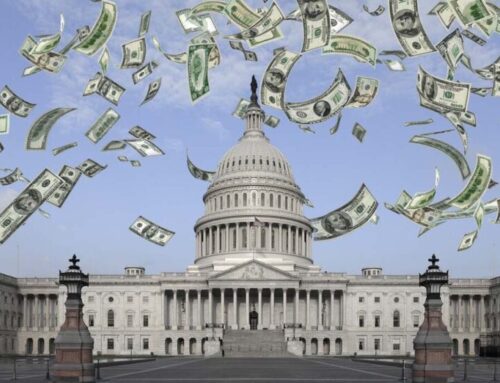In defending the $171 billion farm bill that the Senate is about to consider, proponents will say about anything. They conjure up visions of protecting family farmers and how this bill will save the rural economy. Unfortunately, nothing could be further from the truth.
The numbers speak for themselves. In 2000, nearly two-thirds of the $28 billion in farm subsidies from taxpayers went to the biggest farms in America. Some of the groups that benefit from these subsidies include 1,200 universities, prison farms and twenty of the most profitable corporations in America.
Aside from the fundamental unfairness of farm-aid dollars underwriting corporate agriculture, these subsidies also create other problems. Mainly current farm policy leads to the overproduction of crops. Huge farms aided by these subsidies produced more products than the economy can absorb. As a result, prices drop and new demand for bigger subsidies is created.
This legislation combines the worst policies of the 1996 bill and the foolish ideas from previous years into one bill. It extends subsidies to new crops and there is $3.5 billion more for peanut producers.
The farm debate is emerging at a time when Congress is in a very generous mood. There is a massive rush to hop on the spending train before it leaves the Capitol Hill station. Many are concerned that the money promised earlier this year will evaporate if farm legislation is delayed due to the rising costs of the war and the stalling economy.
It is almost a certainty that farm spending will end up costing much more than $171 billion. If unforeseen events occur that would require additional emergency spending, the price tag would increase dramatically.
Farm bill passage has high political stakes. These new farm handouts are early Christmas gifts to many farm state Senators in tough election races, that are anxious to bring home the Christmas ham.
There are few places that taxpayers can turn for help. The House of Representatives also passed a bill larded with more than $49 billion in farm subsidies. Taxpayers only have the White House to rely on to protect their pocketbooks. The President has condemned the House and Senate bills, but needs to go a step further and threaten to veto this wasteful piece of legislation.
With more than 10 months remaining until the expiration of the current legislation, Congress should take advantage of this time to re-evaluate the efficacy of current farm policy and find a way to make our nation’s farm subsidies programs benefit farmers and taxpayers alike.











Get Social